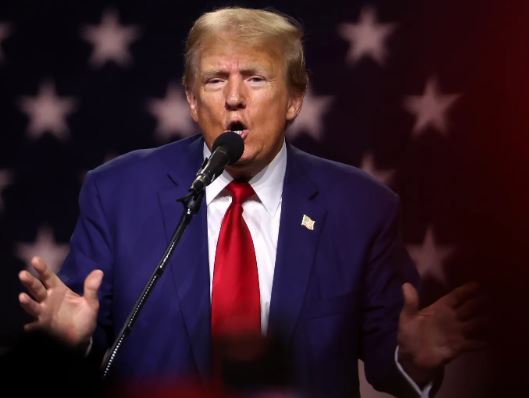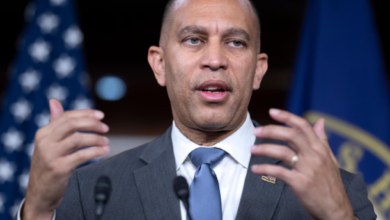Trump’s Gains Among Black Voters Reversed

Former President Donald Trump’s previously reported gains with Black voters appear to have been reversed, according to recent polling data. During his 2020 campaign, Trump made notable inroads with this demographic, surprising many political analysts. However, new data suggests that any progress has been wiped out.
The reversal comes amid a broader analysis of voter trends and attitudes leading up to the next election cycle. Polls indicate that the majority of Black voters are once again showing a strong preference for Democratic candidates, reflecting traditional voting patterns.
Several factors have contributed to this shift. Political experts point to the ongoing discourse around racial justice, economic disparities, and healthcare access as key issues influencing Black voters. Many feel that the current political climate and policy decisions have not adequately addressed their concerns.
Trump’s polarizing rhetoric and actions during his presidency have also played a role in this shift. While some Black voters appreciated his economic policies, many were alienated by his stance on social justice issues and his handling of racial tensions.
Democratic leaders have been quick to capitalize on this trend, intensifying their outreach efforts and emphasizing policies that resonate with Black communities. They are focusing on rebuilding trust and demonstrating their commitment to addressing the systemic issues that disproportionately affect Black Americans.
Political strategists note that maintaining and growing support among Black voters will be crucial for the Democratic Party in upcoming elections. The party’s ability to mobilize this key demographic could significantly impact their chances of success at the polls.
As the political landscape continues to evolve, the dynamics of voter support remain fluid. Both parties will need to continuously adapt their strategies to connect with voters and address their most pressing concerns. The recent data on Black voter preferences underscores the importance of understanding and responding to the diverse needs of the electorate.





